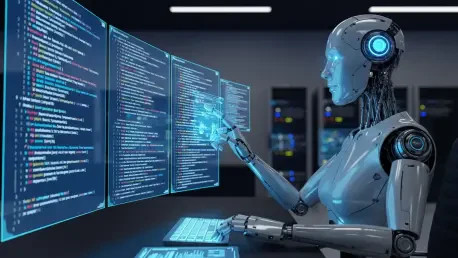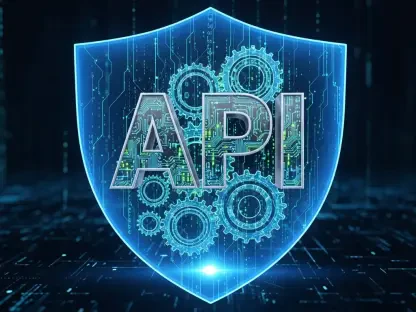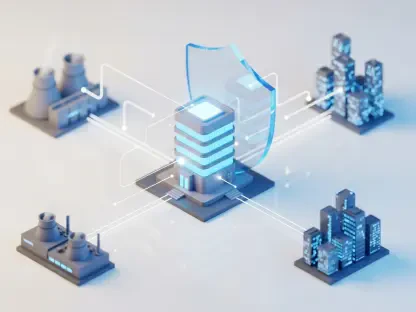Setting the Stage for AI Innovation
In an era where software development underpins nearly every industry, from healthcare to finance, the demand for faster, more reliable coding solutions has reached unprecedented heights, with the global market for AI-driven development tools projected to grow at a compound annual rate of over 25% from this year to 2027. This surge reflects a pressing need for automation that can keep pace with complex, real-world challenges. It also highlights a critical pain point: traditional coding processes and even existing AI tools often falter under pressure, leading to costly errors and delays that businesses can ill afford.
The stakes are high as companies race to integrate adaptive technologies that not only generate code but also ensure its accuracy over time. Amid this competitive landscape, a breakthrough from HeyDonto, a Knoxville-based innovator in AI and data systems, has captured industry attention. Their latest advancement in self-healing AI code generation promises to redefine how software is built and maintained, addressing long-standing inefficiencies with a novel approach inspired by nature itself.
Revolutionizing AI: The Rise of Self-Healing Code Generation
The software development sector is undergoing a profound transformation, driven by automation and AI-powered tools that aim to streamline workflows. Major players like GitHub with Copilot and OpenAI’s models have set a benchmark for code generation, yet the industry still grapples with systems that lack adaptability when faced with unpredictable scenarios. As businesses across sectors increasingly rely on digital infrastructure, the need for AI that can autonomously correct its own flaws has become a top priority.
This growing demand underscores a shift toward resilient systems capable of handling dynamic environments without constant human intervention. From cybersecurity to logistics, organizations are seeking solutions that minimize downtime and reduce the risk of critical failures. HeyDonto’s entry into this space marks a pivotal moment, as their technology not only automates code creation but also embeds a mechanism for self-repair, setting a new standard for reliability in an ever-evolving market.
HeyDonto’s Groundbreaking Study: A New Frontier in AI
Innovative Framework and Core Principles
HeyDonto has made waves with a peer-reviewed study accepted for publication in Frontiers in Artificial Intelligence on September 30 of this year. The research introduces a pioneering framework for self-healing AI code generation, drawing on quantum-inspired optimization, biomimetic algorithms, and fractal design. This unique blend enables AI systems to detect and rectify errors autonomously, mimicking the resilience found in natural systems like the human immune response.
At the heart of this framework lies quantum-inspired optimization, which allows the AI to evaluate countless code solutions simultaneously, identifying the most effective path forward. Biomimetic algorithms further enhance this by replicating biological repair mechanisms, while fractal principles ensure scalability across diverse applications. This integration creates a system that doesn’t just generate code but continuously improves its own performance, offering a robust alternative to static AI tools.
The study emphasizes a departure from conventional methods by prioritizing adaptability over rigid programming. By embedding self-correcting capabilities, HeyDonto’s approach ensures that AI can evolve alongside changing requirements, maintaining functionality even under stress. This represents a significant leap forward, as it addresses a core limitation of current tools: their inability to self-sustain in complex, real-time conditions.
Proven Results and Industry Impact
Validation tests conducted across 15,000 engineering tasks in multiple domains reveal the transformative potential of HeyDonto’s framework. The results are compelling, showing a 94.7% improvement in code correctness compared to traditional AI tools, alongside a 54% reduction in critical errors. Additionally, development time decreased by 41%, offering tangible benefits for teams under tight deadlines.
These metrics suggest far-reaching implications for software development, where precision and speed are paramount. Beyond coding, the framework’s ability to self-heal could revolutionize data systems by eliminating inconsistencies without manual oversight, a boon for industries like healthcare and finance that rely on flawless data integrity. HeyDonto’s innovation positions it as a leader in creating tools that don’t just perform tasks but actively preserve their own effectiveness.
The broader impact lies in how this technology could reshape operational workflows, reducing costs associated with error correction and system downtime. As industries adopt more AI-driven solutions, such advancements pave the way for scalable, dependable automation that aligns with business goals. This study serves as a benchmark for what’s possible when AI is designed to endure rather than merely execute.
Addressing Challenges in AI Code Generation
Current AI coding tools, while impressive in controlled settings, often exhibit brittleness when deployed in unpredictable, real-world environments. Issues such as incorrect outputs, inability to handle edge cases, and high maintenance needs hinder their effectiveness, frustrating developers who must frequently step in to fix problems. This inefficiency creates bottlenecks, particularly in high-stakes projects where errors can have cascading consequences.
HeyDonto’s self-healing framework tackles these shortcomings head-on by embedding resilience into the AI’s core design. Inspired by nature’s ability to adapt and recover, the system identifies flaws in its own code and implements corrections without external input, ensuring consistent performance. This capability reduces the burden on human teams, allowing them to focus on innovation rather than troubleshooting.
Scalability is another critical area where this approach excels. By leveraging fractal design, the framework adapts to projects of varying complexity, from small scripts to enterprise-level systems. This flexibility addresses a key industry challenge: ensuring that AI tools remain viable as demands grow. HeyDonto’s solution offers a pathway to sustainable automation that can evolve with technological advancements.
Ethical and Regulatory Dimensions of Self-Healing AI
As AI systems become more autonomous, ethical considerations take center stage, and HeyDonto’s research reflects a strong commitment to responsible development. The framework prioritizes human oversight, ensuring that self-healing processes operate within defined boundaries and remain transparent to users. This focus on collaboration prevents AI from becoming an opaque, unaccountable force in critical applications.
Transparency is further reinforced through mechanisms that allow developers to track and understand the AI’s decision-making, fostering trust in its outputs. The study aligns with emerging standards for responsible automation, advocating for systems that complement rather than replace human expertise. Such principles are vital in sectors like healthcare, where accountability cannot be compromised.
Regulatory frameworks also play a crucial role in shaping the deployment of self-healing AI. HeyDonto’s emphasis on ethical design aligns with global efforts to establish guidelines for trustworthy technology, ensuring compliance with potential future mandates. By addressing these dimensions upfront, the company sets a precedent for balancing innovation with societal responsibility, a balance that will define the next wave of AI adoption.
The Future of Resilient AI Systems
The trajectory of AI points toward emergent intelligence, where systems not only learn from data but also self-correct to maintain functionality over time. This trend is poised to become a cornerstone of future technology, as industries seek tools that can withstand disruption without constant recalibration. HeyDonto’s framework is at the forefront of this shift, offering a glimpse into a world where AI is inherently durable.
Cross-industry applications, particularly in healthcare, highlight the versatility of self-healing systems. From maintaining patient data integrity to supporting diagnostic tools, the potential to eliminate manual errors could transform how care is delivered. HeyDonto envisions a culture of trusted, actionable intelligence, where AI serves as a reliable partner across diverse fields, enhancing outcomes without sacrificing accountability.
Looking ahead, the focus on resilience will likely drive investment in technologies that prioritize adaptability and ethical alignment. As challenges in automation persist, solutions like HeyDonto’s could catalyze a broader movement toward systems that learn, repair, and collaborate seamlessly with human operators. This vision underscores the importance of building AI that not only solves problems but also sustains itself through evolving demands.
Reflecting on a Milestone in AI Development
HeyDonto’s breakthrough in self-healing AI code generation marks a defining moment in the industry, showcasing how nature-inspired design can address persistent challenges in automation. The impressive performance metrics and ethical grounding of their framework provide a robust foundation for rethinking software development. This achievement stands as a testament to the power of integrating advanced theory with practical application.
Moving forward, the industry is encouraged to prioritize investments in resilient, transparent AI systems that maintain human oversight as a core principle. Stakeholders across sectors need to collaborate on establishing clear regulatory guidelines to ensure such technologies remain trustworthy. HeyDonto’s work lays the groundwork for actionable next steps, urging a collective push toward automation that balances efficiency with accountability.
The path ahead demands a focus on scaling these innovations while addressing potential risks through rigorous testing and open dialogue. By fostering a culture of shared responsibility, the tech community can build on this milestone to create AI that not only performs tasks but also safeguards its own integrity. This commitment to sustainable progress offers a promising outlook for transforming challenges into opportunities.









